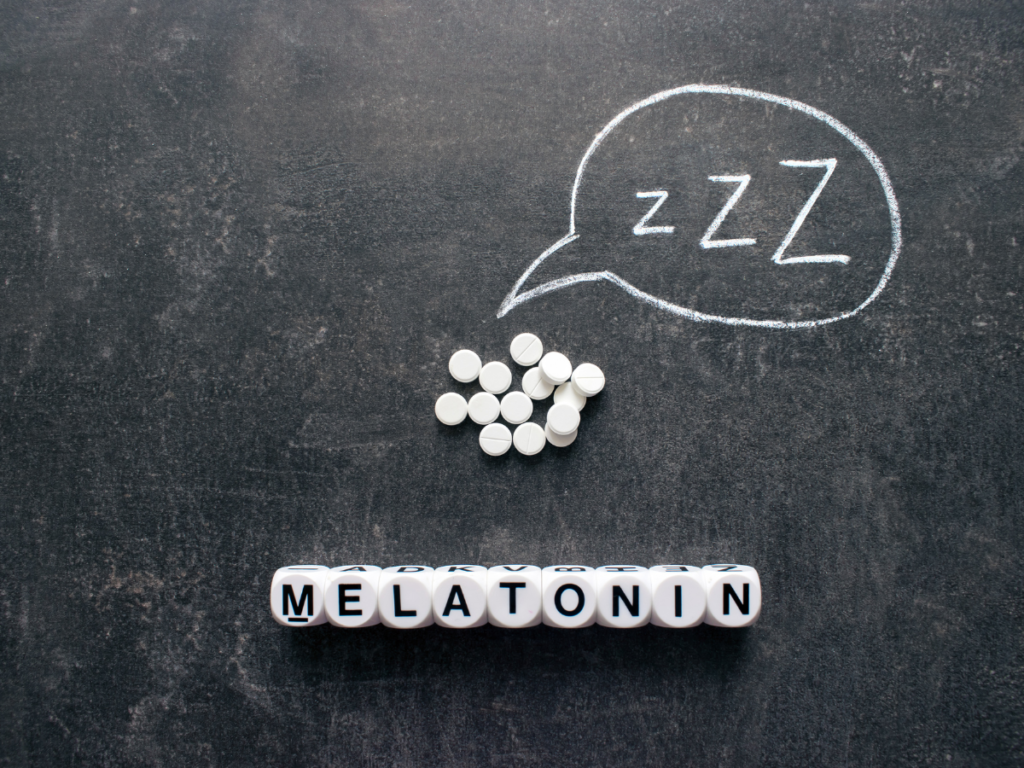Sleep problems in children can be challenging for both parents and kids. It’s not uncommon for parents to consider melatonin supplements as a potential solution. Melatonin is a hormone that regulates sleep-wake cycles and is available over-the-counter in some countries but is currently only available on prescription in the UK.

What are the pros of prescribed melatonin for children with sleep issues?
- Natural Hormone: Melatonin is a natural hormone produced by the pineal gland in the brain. Using melatonin supplements can mimic the body’s natural sleep-wake cycle, making it a relatively safe option.
- Short-Term Solution: Melatonin can be helpful for short-term use, especially when a child is experiencing sleep disruptions due to jet lag, changes in routine, or occasional sleeplessness.
- Minimal Side Effects: In most cases, melatonin has few side effects, which are generally mild and temporary. These may include headaches, dizziness, or drowsiness.
- Non-Habit Forming: Melatonin is not considered addictive, making it a preferable choice over some other sleep aids that can lead to dependency.
- Easy to Administer: Melatonin supplements are available in various forms, including tablets, gummies, and liquid, making it convenient for children who have trouble swallowing pills.
- Supported by Research: Several studies have shown melatonin to be effective in improving sleep duration and quality in children with sleep disorders, such as insomnia and delayed sleep phase syndrome.
What are the cons of prescribed melatonin for children with sleep issues?
- Lack of Long-Term Safety Data: While melatonin is generally considered safe for short-term use, there is limited research on its long-term effects, especially when used in children. It’s essential to use it under the guidance of a healthcare professional.
- Variability in Quality: The quality of over-the-counter melatonin supplements can vary significantly, which may affect their effectiveness and safety. It’s crucial to choose reputable brands.
- Potential Disruption of Natural Melatonin Production: Some experts worry that using melatonin supplements regularly may disrupt the body’s natural melatonin production, potentially making the child reliant on external sources.
- Individual Variability: Melatonin may not work the same way for all children. Its effectiveness can vary depending on factors like the child’s age, the cause of sleep problems, and their overall health.
- Not a Cure-All: Melatonin should not be considered a magic solution for all sleep issues in children. It may not address the root causes of sleep problems, such as underlying medical or psychological issues.
- Interaction with Medications: Melatonin can interact with certain medications or medical conditions. Always consult a healthcare provider before giving melatonin to a child, especially if they are taking other medications or have any underlying health concerns.
- Dosing Challenges: Determining the appropriate dosage for children can be challenging. A healthcare provider should recommend the right dosage based on the child’s age, weight, and specific sleep problem.
Melatonin can be a useful tool in managing sleep problems in children when used cautiously and under professional guidance. It offers several advantages, such as being a natural hormone with minimal side effects and non-addictive properties. However, it’s essential to be aware of the potential drawbacks, such as the lack of long-term safety data and the risk of disrupting natural melatonin production.
When considering melatonin for children’s sleep issues, consult a healthcare provider for personalized guidance and dosage recommendations. Remember that melatonin should be viewed as a temporary solution, and addressing the underlying causes of sleep problems should be a priority. Ultimately, the decision to use melatonin should be based on a thorough evaluation of the child’s specific needs and circumstances. Parents should not give their child melatonin without seeking medical advice first.